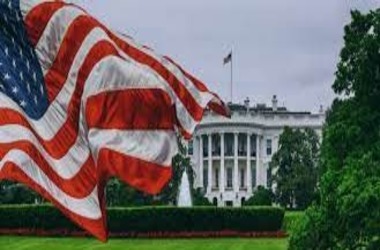 A new law that would create the job of blockchain adviser for the US government has blockchain enthusiasts excited. Following a 243-147 vote on Thursday, the “CHIPS and Science Act” has overcome a congressional objection.
A new law that would create the job of blockchain adviser for the US government has blockchain enthusiasts excited. Following a 243-147 vote on Thursday, the “CHIPS and Science Act” has overcome a congressional objection.
All that is needed now is President Joe Biden’s signature, and observers believe the subsequent action will be simple. The main goal of the legislation is to support American chip and semiconductor production.
The authors of the legislation gave around $52 billion in assistance to domestic chip producers to boost output. The IT industry has been beset by a chip shortage since the epidemic, which has led to soaring pricing and a reliance on foreign suppliers.
“For years, experts have advocated that we should stop manufacturing in America. Manufacturing jobs have returned,” said Biden. “I never had that opinion. Now that this law is in place, there will be even more of them.”
The legislation will create a post for the Biden administration to provide guidance on digital money in addition to lowering manufacturing costs. Industry executives have lauded the new post, which will report to the Office of Science and Technology Policy, as a positive move.
The Congressional Blockchain Caucus leader and proponent of digital currency, Rep. Darren Soto (D-FL), was overjoyed when the measure was passed by the House of Representatives. “I’m happy to advocate the appropriate policies to make sure that innovation continues to thrive in our government,” Soto said.
Few lawmakers have publicly said that they are against the measure. The opposition, lead by Bernie Sanders, said that the proposed bill is nothing more than a free pass for chip makers.
There is no denying that the shortage of microprocessors and semiconductors is a serious threat to our nation, according to Sanders. “I fail to understand why so many Congressmen are willing to take this bribe.”
Despite making more than $70 billion in profits over the previous year, Sanders said in a public speech that the top five semiconductor businesses would get the majority of the subsidies as a consequence of the Congress’s decision.
He implied that under certain conditions, he would back the proposal. The first priority is that businesses shouldn’t buy back their own stock and should maintain objectivity when it comes to union business.








